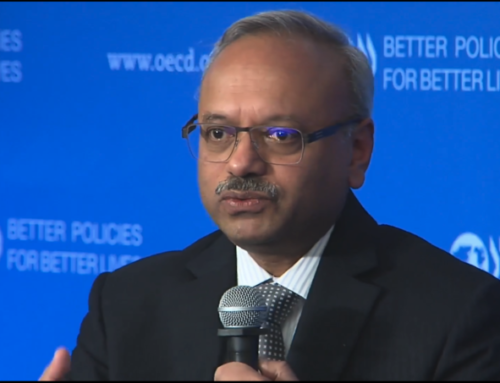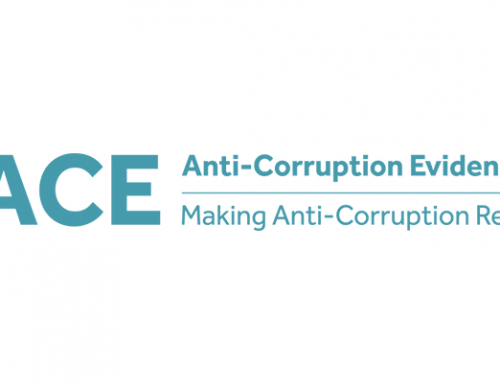This blog was written by Dr Ali Ahmad, Research Fellow at Harvard Kennedy School of Government, partner of the SOAS Anti-Corruption Evidence Consortium. It was originally published on International Growth Centre on 3 March 2021. It is republished here under a Creative Commons licence.
The effects of poor-quality energy supply are not gender neutral, and fall more heavily on women. New research from Lebanon explores how sustained energy access enhances women’s day-to-day lives and better protects female-headed households. While access to sustainable energy is a necessary development goal for all countries, the co-benefits brought to gender equity should not be overlooked.
Lebanon’s power sector is characterised by pronounced challenges relating to rent-seeking, corruption, and mismanagement of public finances. Within this context, gender dynamics are often overlooked. Although the disproportionate gender impacts of unreliable, unaffordable, and poor quality electricity supply are a global issue, in Lebanon they are compounded by systemic gender inequalities and a substantial refugee population.
A recent study by the Anti-Corruption Evidence Research Consortium(SOAS-ACE) highlights the potential role of decentralised power generation models for Lebanon. It focuses on Électricité de Zahlé (EDZ) – a local private utility often cited as one of the only success stories in Lebanon’s troubled energy sector – and draws on interviews with the local community to understand the impact of service delivery on their livelihoods.
Of particular interest is the gender-differentiated impact of energy supply. Our interviews conducted in Zahle highlight the positive effects of a reliable energy supply at the household and small business levels, compared to areas beyond EDZ coverage where women’s day-to-day lives are impacted by both the cost and quality of their electricity supply.
A power sector plagued by poor service – and the burden this brings
Energy access is not a problem in Lebanon, since almost every household is connected to the power grid. However, service provision, quality, and affordability are pressing issues. Most areas of Lebanon are served by a combination of power from the state utility Électricité du Liban (EDL), which suffers daily blackouts ranging from 3 to 12 hours or more, as well as a largely unregulated and costly diesel generator network to fill the gaps.
Such poor and unreliable electricity supplies can increase stress and time required for household tasks that traditionally fall to women. Meanwhile, the expense of backup energy sources in the case of diesel generator subscriptions becomes increasingly unaffordable for families already suffering from the effects of economic crisis. Female-headed households face the brunt of this burden, having lower average incomes than their male-headed counterparts and therefore paying a higher share of their income towards electricity.
This is particularly relevant in countries in crisis such as Lebanon. The country is reeling with the economic and social impacts of the global COVID-19 pandemic, in addition to significant political instability, and a collapsed financial system that predated it, as well as the ripple effects of the war in Syria.
As research has shown, during times of crisis, women are likely to lose their jobs and income prospects before men. At the same time, women face an increase in unpaid and ‘invisible’ household work and are restricted in their autonomy, social mobility, and safety due to prevailing cultural and social norms. Lack of street lighting due to poor power supply exacerbates women’s fears of gender-based violence and forces them to limit their movement further.
Within such a context, many women miss out on opportunities around paid work and education, which in turn impacts their families’ livelihoods. Moreover, such pressures particularly impact Syrian refugee women in Lebanon, who often live in remote areas and are already unable to move as freely as men due to cultural norms and fears of sexual harassment and assault.
The gender impacts of the decentralised model
Compared to other areas of Lebanon, households in Zahle and surrounding villages covered by EDZ’s network have consistent access to reliable and good quality electricity. This enhanced provision benefits men as well as women, but since women all too often bear the brunt of the impacts of poor electricity delivery, they also stand to benefit the most from improved service.
Female interviewees in the EDZ service area expressed a sense of relief at having a consistent and adequate electricity supply at home. They do not have to organise energy-intensive daily tasks such as laundry, vacuuming, and food preparation around the availability of electricity.
Women living in villages outside of EDZ’s coverage area, on the other hand, noted that the source of electricity at any given time – the EDL grid or diesel generators – affects what tasks they can do, and when. For instance, some women noted waiting to do energy-intensive tasks when the state-provided electricity supply is available as generator power is more expensive. Others said the quality of the electricity provided by diesel generators is inadequate to complete simple household chores like ironing. Inconsistent power availability can also impact quality-of-life issues like the ability to heat water for a shower, use a hair dryer, or use air conditioning.
Addressing gender dynamics makes business and policy sense
EDZ is clearly aware that women are a key demographic within its customer base – indeed, many of its advertisements intentionally and ‘strategically’ feature women in the domestic sphere. And in 2018, amidst a political struggle over the renewal of its contract, EDZ also recruited women as activists and ambassadors alongside men.
But beyond this, advancing gender equality is an important co-benefit of any efforts to improve access to reliable and affordable electricity supply, particularly in fragile contexts like Lebanon with large populations of refugees and female-headed households. While our study also reveals some less-than-ideal facets of EDZ’s model, namely its extensive rent extraction, there is no disputing that the company’s provision of consistent power has had a positive impact on women’s lives in and around Zahle.
—
Image credit: Lebanese women look from a window in a building covered with electricity wires in the northern Lebanese city of Tripoli on March 13, 2016 (PATRICK BAZ/AFP via Getty Images)






